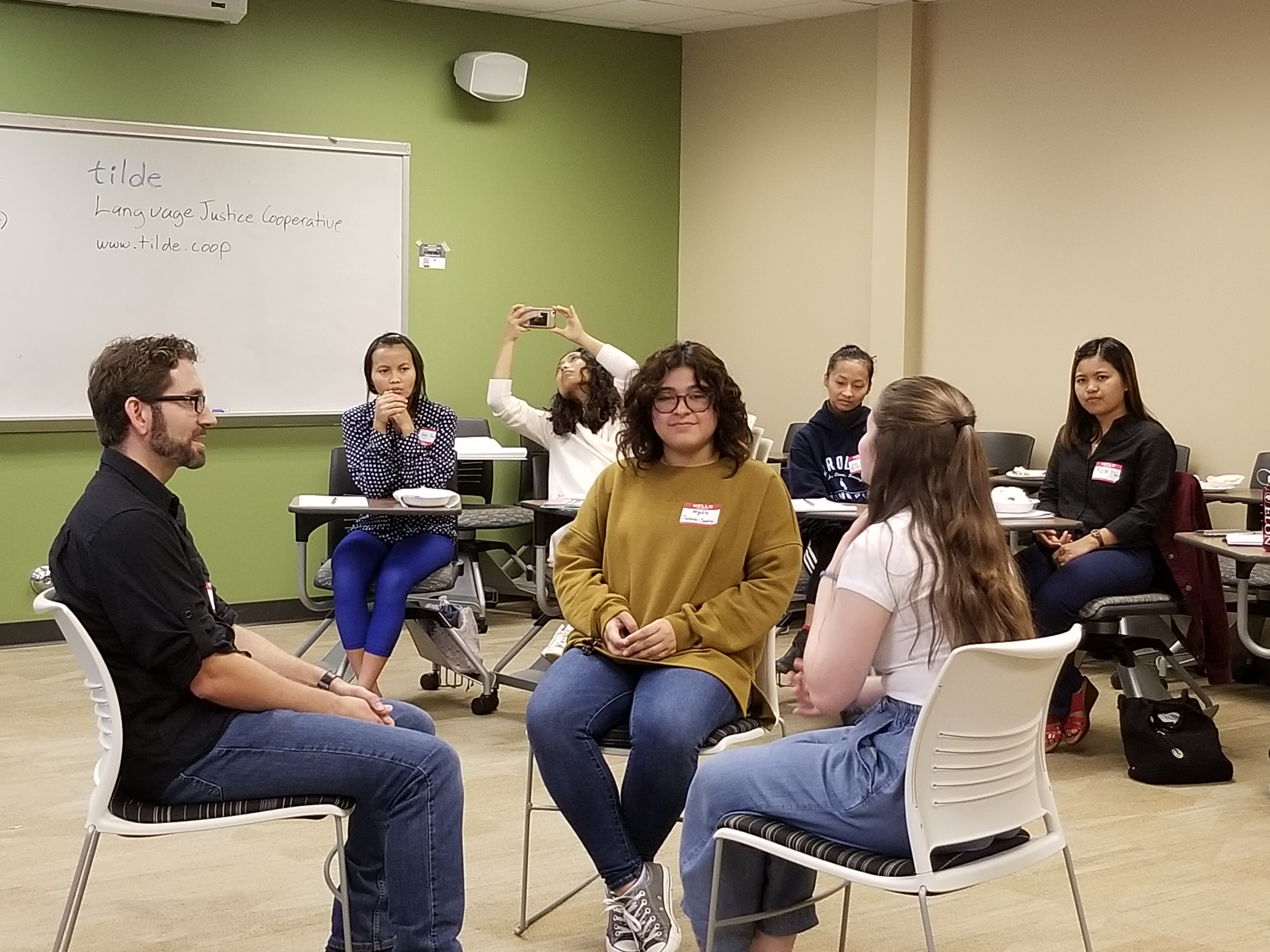The one-day interpreting training delivered by tilde language justice cooperative builds community capacity for language access and social justice
 Elon recently hosted a one-day interpreting training designed to increase the capacity of the broader community to navigate multilingual spaces and to foster cross-cultural communication and collaboration within campus and beyond. The training was offered with the support of generous contributions from the Peace & Conflict Studies program, the Department of World Languages and Cultures, the Department of Human Services Studies, the Global Neighborhood, the Latinx Hispanic Union (LHU), the Latin American Studies, El Centro, and the Center for Race, Ethnicity , & Diversity Education (CREDE).
Elon recently hosted a one-day interpreting training designed to increase the capacity of the broader community to navigate multilingual spaces and to foster cross-cultural communication and collaboration within campus and beyond. The training was offered with the support of generous contributions from the Peace & Conflict Studies program, the Department of World Languages and Cultures, the Department of Human Services Studies, the Global Neighborhood, the Latinx Hispanic Union (LHU), the Latin American Studies, El Centro, and the Center for Race, Ethnicity , & Diversity Education (CREDE).
In order to meet these goals, various departments and student organizations teaming up with tilde Language Justice Cooperative, a language-service collective that provides high-quality interpretation and translation services along with training and capacity building in the areas of language justice and multilingual spaces. As a leader in these efforts, Durham, N.C-based tilde is well-positioned to support Elon leaders seeking to foment greater commitment to and capacity in these important areas. The one-day Language Justice Training was aimed primarily at Elon students but Elon alumni, faculty, staff and community partners are welcome to join.
The 20 participants in this Language Justice workshop included students, faculty and community partners from within the Triangle area. The workshop used a wide variety of techniques for language interpretation, including memory jog exercises, stories of interpretation, recovery techniques, chain exercises and practices of consecutive interpretation.
Participants engaged in the discussion of case studies offered by trainers or participants, simulating interpretation in cross-cultural events when interactions with law enforcement could place, and in situations of domestic violence when interpreters are used in case investigation, among others. Participants engaged in a discussion regarding interpretation for social justice, issues of access to language justice, how to communicate across languages, and the role of professional interpreters.



